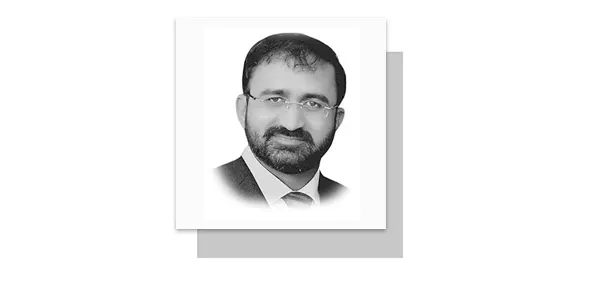LOCATED in modern-day Saudi Arabia, the ancient city of Madinah is significant to Islamic history since it was here that the Prophet Muhammad (PBUH) founded the first Islamic state in the seventh century CE. The socioeconomic and governmental structures put in place during this time provide insightful understandings of enduring governance, economic fairness, and social welfare concepts. The Prophet Muhammad (PBUH) founded a distinctive political system in Madinah, the birthplace of the early Muslim community, based on the ideas of responsibility, justice, and consultation (Shura). Majlis al-Shura, a council of elders and community leaders that counselled the Prophet on matters of state affairs and policymaking, served as the cornerstone of governance. The community’s inclusion and representation of a range of viewpoints were guaranteed by this participatory method to decision-making (Ibn Ishaq 2014).
In addition, the creation of the treasury, or Bayt al-Mal, was crucial to social welfare and wealth redistribution. This organization collected taxes, including the mandatory alms (Zakat), and distributed the proceeds to charitable organizations, interest-free loans to business owners, and investments in public works initiatives. The equitable distribution of income and the transparent management of resources (Siddiqui 2011) fostered economic stability and social cohesion. The goals of economic fairness, reducing poverty, and facilitating access to education defined Madinah’s socioeconomic structure. Islamic economics was founded on the idea of Zakat, or required almsgiving, which placed an emphasis on wealth redistribution as a means of addressing inequality and reducing poverty (Khan 2008). In order to ensure the welfare and social inclusion of widows, orphans, the elderly, and other vulnerable groups, Zakat money were utilized.
Furthermore, the Prophet Muhammad (PBUH) stressed the value of education as a tool for societal advancement and empowerment. Madaris, or schools, were founded to teach children the fundamentals of reading and religion while also encouraging moral growth and critical thinking. The community’s intellectual growth and socioeconomic improvement were made possible by this dedication to education (Esposito 2004). Madinah’s socioeconomic structure and governance embody ageless values of fairness, inclusivity, and communal well-being that are applicable to modern development projects and governance across the globe. Pakistan, a nation with a cosmopolitan population and rich cultural legacy, faces numerous socioeconomic obstacles that limit its advancement. Informed by Madinah’s governance and socioeconomic framework, effective solutions and initiatives require a thorough understanding of these difficulties.
Significant differences exist in Pakistan’s economy, particularly between rural and urban areas. Due to their reliance on agriculture, rural populations suffer a number of difficulties, including low production, a lack of modernity, and a high risk of natural disasters (Khan et al., 2019). On the other hand, urban areas grow quickly but face challenges such low-wage jobs, unregulated labour markets, and poor infrastructure (Ahmed & Mahmood, 2013). These differences impede inclusive growth and amplify socioeconomic inequities. In Pakistan, poverty continues to be a major issue that impacts a sizable portion of the populace. The World Bank (World Bank, 2020) estimates a quarter of a million Pakistanis, mostly in rural regions, to be below the poverty line. A number of factors, especially in marginalized areas, including poor access to healthcare, education, and employment prospects (Ahmed & Memon, 2021), sustains poverty cycles. Targeted measures that improve livelihoods, social protection, and economic empowerment are necessary to combat poverty.
The core of the Madinah Model is participatory government, which is defined by the decentralization of power, the active participation of citizens in decision-making processes, and the empowerment of local communities. Using the Madinah governance model as inspiration, this section examines methods for implementing participatory governance in Pakistan. One of the main components of the Madinah Model is Zakat, or Islamic almsgiving, which aims to reduce poverty, assist the underprivileged, and advance social justice (Siddiqui, 2019). The government of Pakistan collects and distributes Zakat through the Zakat and Ushr system, although concerns have been raised about its efficacy and transparency (Rahman, 2018). Policymakers can benefit from the accountability and social welfare tenets of the Madinah Model to modernize the Zakat system and enhance its influence on economic justice (Ali, 2021). This could involve strengthening the procedures for collecting and distributing Zakat, increasing accountability in its administration, and ensuring proceeds are used wisely to assist the most disadvantaged members of society (Khan & Siddiqui, 2020). Additionally, increasing the wealthy population’s knowledge of and involvement in Zakat can boost its income and reach more people in need (Amin, 2020).
The socioeconomic framework of Madinah emphasizes social welfare and inclusive development, focusing on economic redistribution, poverty reduction, and education. This dedication to fair wealth distribution and social assistance highlights the growth and welfare of people. Pakistan faces several socioeconomic problems, including poverty, educational inequality, and economic inequities, despite the Madinah model’s potential. These ongoing issues emphasize the need for creative, comprehensive approaches to tackle the underlying causes of inequality and poverty. Strategies based on the Madinah model include funding initiatives to reduce poverty, advancing economic fairness, strengthening participatory government, and expanding educational opportunities. Policymakers should prioritize institutional reforms, fund social protection programs, and promote inclusive development projects that empower marginalized groups and foster social cohesion.
—The writer is a PhD in Islamic thought and culture from NUML Islamabad.










